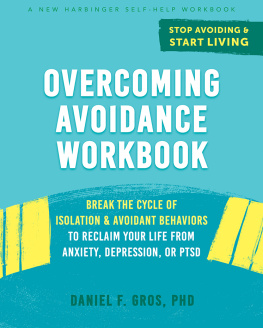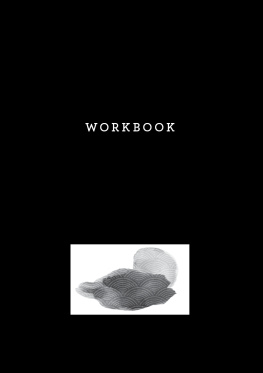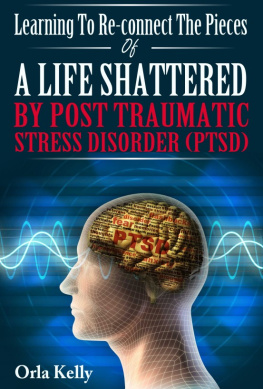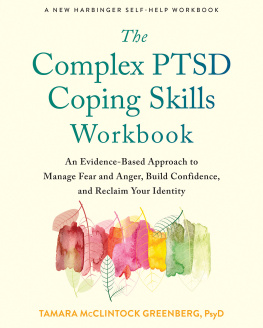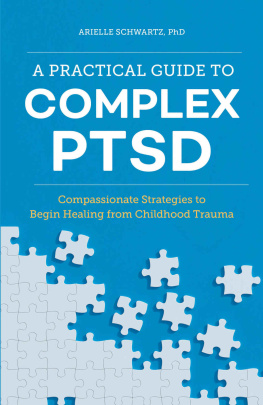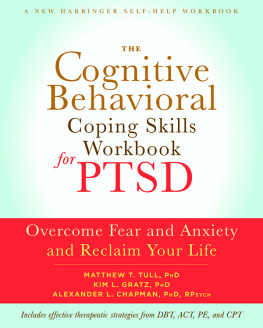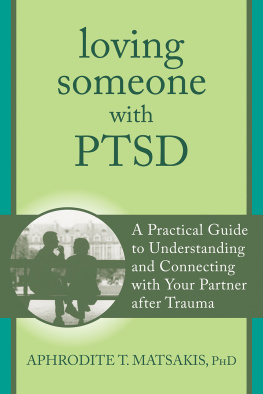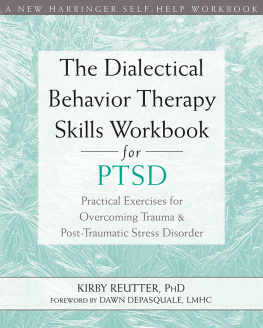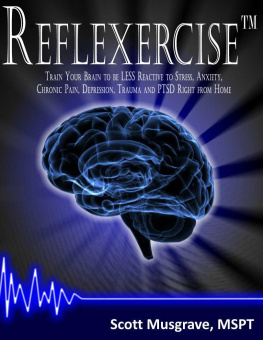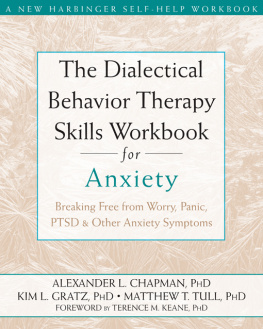Daniel Gros has written an easily understandable guide to self-therapy where he has effectively identified, tried, and convicted avoidance as the key culprit in maintaining pathological behavior. But more importantly, he outlines a method of recognizing, operationalizing, and confronting the four types of avoidance as a means to achieve better mental health. The book incorporates worksheets and fillable tables so the reader can set about achieving real clinical gains immediately and independently.
Ron Acierno, PhD , director of the UTHealth Trauma and Resilience Center in Houston, TX; and clinical psychologist and researcher treating post-traumatic stress disorder (PTSD) and other anxiety disorders across the lifespan
I commend Daniel Gros for translating his many years of research developing transdiagnostic behavior therapy (TBT)a highly effective intervention for reducing avoidance and improving quality of life for individuals suffering from a range of mental health conditionsinto this practical, well-written workbook. Overcoming Avoidance Workbook provides a straightforward, evidence-based approach that will help you to reduce your avoidance and get your life back on track!
Randi McCabe, PhD, CPsych , clinical psychologist, professor in the department of psychiatry and behavioral neurosciences at McMaster University, and author of Cognitive-Behavioral Therapy in Groups
Wonderful! This approachable workbook targets negative emotions with state-of-the-science techniques. Daniel Gros provides an easy-to-grasp framework and practical, evidence-based steps to overcome the behaviors that feed anxiety and depression. If you are ready for change, this book is for you.
Matt R. Judah, PhD , clinical psychologist, and assistant professor of psychological science at the University of Arkansas
Anxiety, mood, and trauma-based disorders are highly prevalent conditions that are undertreated. Overcoming Avoidance Workbook offers an excellent road map to overcoming such issues. Daniel Gros has distilled important science-based treatment innovations into a highly readable and clearly defined set of procedures.
N.B. Schmidt, PhD , distinguished research professor, and director of the Anxiety and Behavioral Health Clinic at Florida State University
This book guides readers straight to the heart of several of the most potent, evidence-based techniques available for anxiety and depression. Loaded with relatable examples and targeted exercises, it arms readers to battle and overcome avoidance, no matter the form it takes. Its like having a down-to-earth, no-nonsense therapist right in your handguiding your journey step by step and cheering you on as you work through these challenging but effective techniques.
Cynthia Lancaster, PhD , assistant professor of clinical psychology at the University of Nevada, Reno
Withdrawal and avoidance are natural responses to situations that trigger distressing emotions, though paradoxically, over-relying on these responses can increase the likelihood of experiencing these emotions over time. This book will teach you skills to reduce avoidance, cope better with unpleasant emotions, and live a more fulfilling life. Its well written, practical, easy to follow, and based on sound, evidence-based approaches. I highly recommend it!
Martin M. Antony, PhD, ABPP , professor in the department of psychology at Ryerson University, coauthor of The Shyness and Social Anxiety Workbook , and past president of the Association for Behavioral and Cognitive Therapies
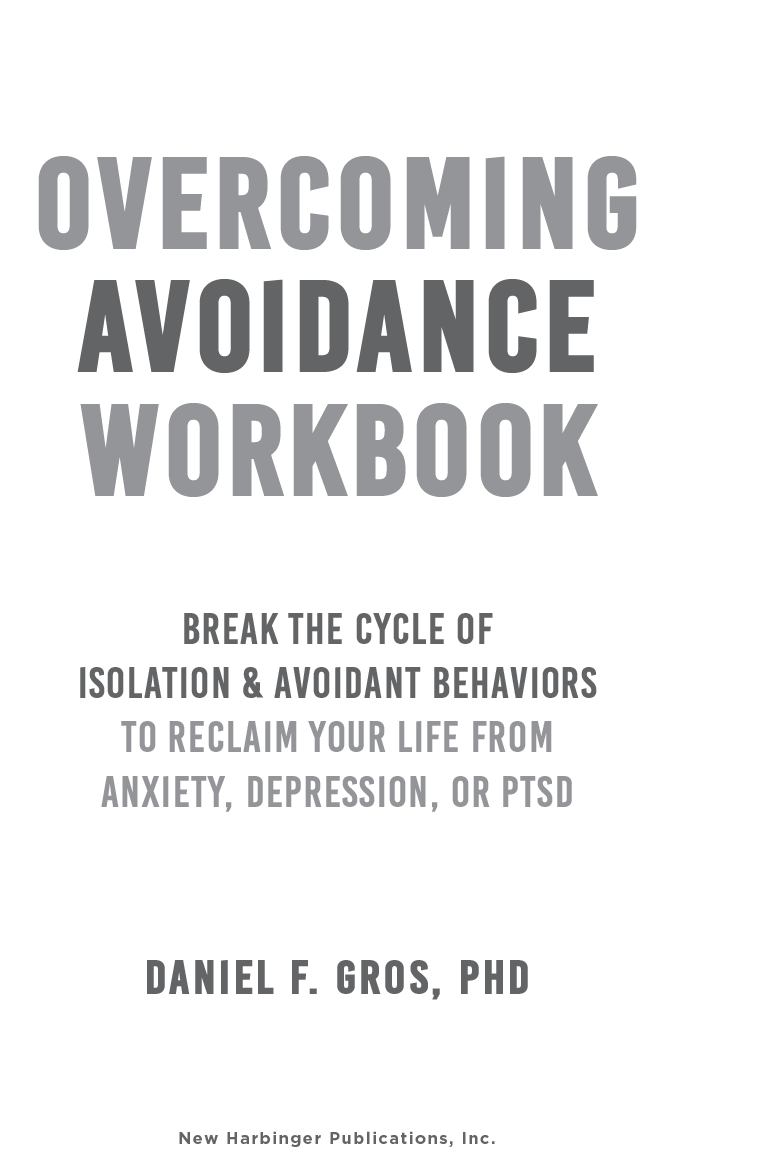
Publishers Note
This publication is designed to provide accurate and authoritative information in regard to the subject matter covered. It is sold with the understanding that the publisher is not engaged in rendering psychological, financial, legal, or other professional services. If expert assistance or counseling is needed, the services of a competent professional should be sought.
Distributed in Canada by Raincoast Books
Copyright 2021 by Daniel Gros
New Harbinger Publications, Inc.
5674 Shattuck Avenue
Oakland, CA 94609
Cover design by Sara Christian
Acquired by Ryan Buresh
Edited by Kristi Hein
All Rights Reserved
Library of Congress Cataloging-in-Publication Data on file
For Alie and Henri
Contents
Introduction:
When Avoidance Seems Like a Solution, It May Be Your Biggest Problem
Is Avoidance a Problem for You?
Before answering this, I want to share how I arrived at this question in the first place. I am a clinical psychologist by training, and a clinician, teacher, administrator, and researcher by trade. I have spent the last fifteen years developing these areas of my career, with the overarching goal of improving psychotherapy outcomes in my patients (through my own clinical work), in other providers patients (through my teaching of the next generations of therapists), in the hospital systems at large (through my administrative leadership and policy development), and through innovation, investigation, and publication (through my research). It has been quite the journey, yet at times I feel like Ive barely scratched the surface. However, it is this journey that led me to ask you this question and to offer you an effective way to stop avoiding and start living, through this self-help book, derived from my years of experience in these areas.
Over the years, Ive been invited to speak at various universities and hospitals about my understanding of psychotherapy and how it is applied to different disorders and sets of symptoms. It is an experience that I greatly enjoy. I always begin my talks with the same slide, which starts with a common patient example: Im so frustrated with myself. No matter how hard I try, I cannot get myself into a grocery store. Its just too overwhelming. I have to ask my brother to pick up groceries for me. The example may sound familiar, as it is one of the more common symp-toms that we see clinically. That common symptom is, of course, avoidance. I follow this patient example with the seemingly simple question: Which disorder(s) do I have? And while it may sound simple, I tend to get answer after answer after answer from students, faculty, and clinicians alike It is major depression. It must be PTSD. Its definitely panic disorder. My vote is social anxiety disorder. Dont forget about alcoholism. Or even No way; its irritable bowel disorder. Once the audience makes it through a lengthy list of potential diagnoses, I reveal that I dont know the answer. Because the answer could be any of the suggested diagnosesor two or three of them. These are the most common mental health disorders, and they all have one thing in common: they all have avoidance as one of their primary symptoms.
With that start to my talk, I spend the rest of the time talking about how avoidance is the key to these disorders, and I present study after study to support my claims. (A listing of scientific articles supporting this work is provided in the Appendix.) While I promise not to bore you with scientific jargon or statistical findings in this book, youll learn all about the negative influence that avoidance is having on the life that you want to live and how you can put an end to avoid-ance and start living again. In fact, all of this is very much related to the concluding slide of my talk. In that slide, I return to the same clinical example, involving the patient who needs their brothers help to buy groceries. However, I follow the example with a different question: How do you treat my symptoms? Unlike the flurry of differing opinions about the potential diagnosis, the answer to the treatment question is largely the same, whether Im speaking on the East Coast of the States, the West Coast, someplace in between, or someplace beyond the border. That answer, of course, is, You teach the patient skills to push themselves to the grocery store again and again until they learn that the experience is less negative and more positive than they had expected and they overcome their avoidance, leading to symptom improvements and recovery.

